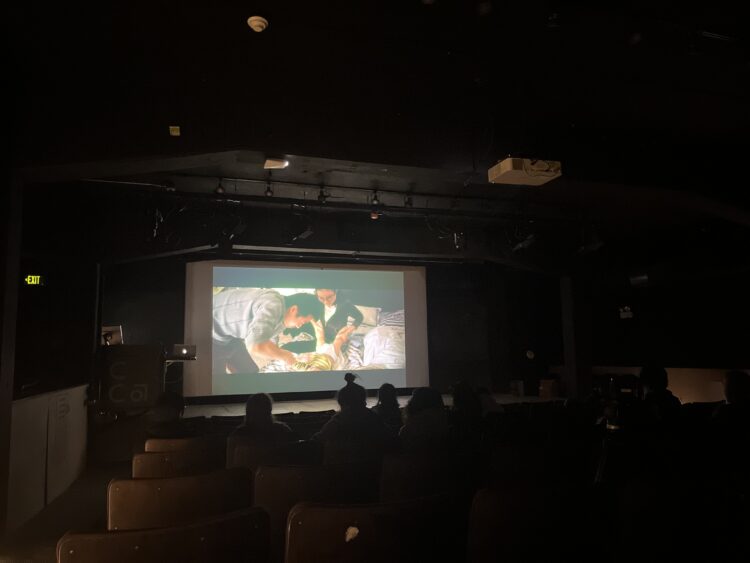jackie sumell’s Artist Diary: The Abolitionist’s Tea Party & Apothecary
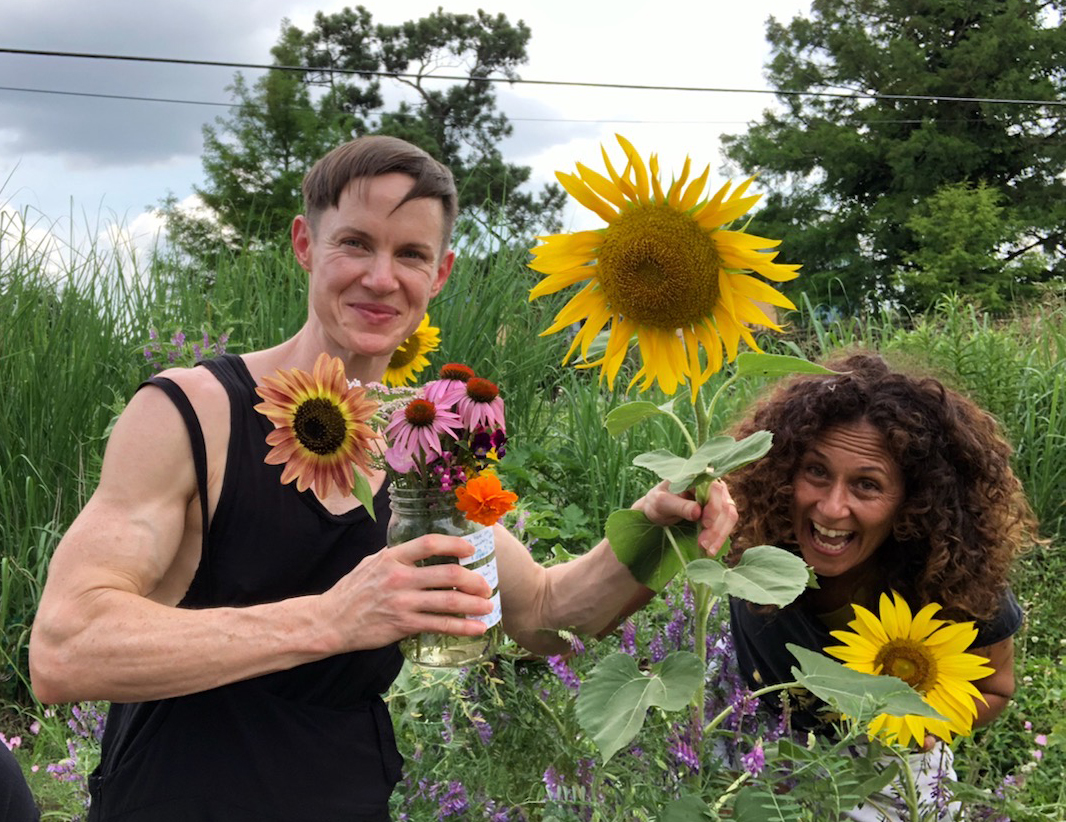
How is tending a garden connected to prison abolition? 2020 Creative Capital Grantee jackie sumell’s social practice shows that both require similar care, fortitude, and collaboration. An offshoot of her Creative Capital Project, The Abolitionist’s Apothecary & Tea Party, the installation Growing Abolition is currently on view at MoMA PS1. Created in partnership with the Lower Eastside Girls Club, the greenhouse situated in the museum’s courtyard is scaled to the footprint of a solitary confinement cell from a maximum security prison. Transforming a space of confinement into one of possibility, the greenhouse offers occasion for both growing and learning through plantings, conversations, and workshops.
On August 5, sumell will release a publication, The Abolitionist’s Field Guide as part of her multifaceted project. Read on to hear from the artist about the work, how it has evolved, and what lessons we can learn from plants.
My work is how I say “thank you” to my elders Herman Wallace, Albert Woodfox and Robert King. This practice is rooted in generosity and collaboration. As a social practice artist I am constantly inspired by the possibilities of sharing and in awe of the natural world. I see myself as a multidisciplinary artist at the intersection of social practice, abolition, and radical ecology.
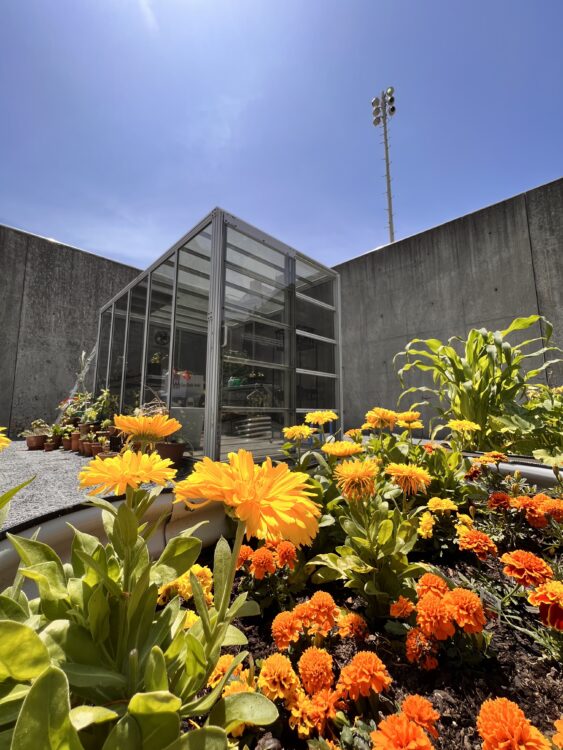
Solitary Gardens at MoMA PS1, Queens, NY. Photo by jackie sumell
I am pumped about all the ways the natural world teaches us about abolition and liberation. Plants teach us to be better people. If we are willing to listen we can learn so much about ourselves, our relationships and our planet through the lived experience of the plant kingdom. Plants have really figured it out!
Let us call prison abolition a spiritual practice. In a society whose imagination is crippled by personal and collective trauma, it is important to illustrate not only what is wrong with systems of injustice, but also what is possible. How else can we imagine a landscape without prisons?
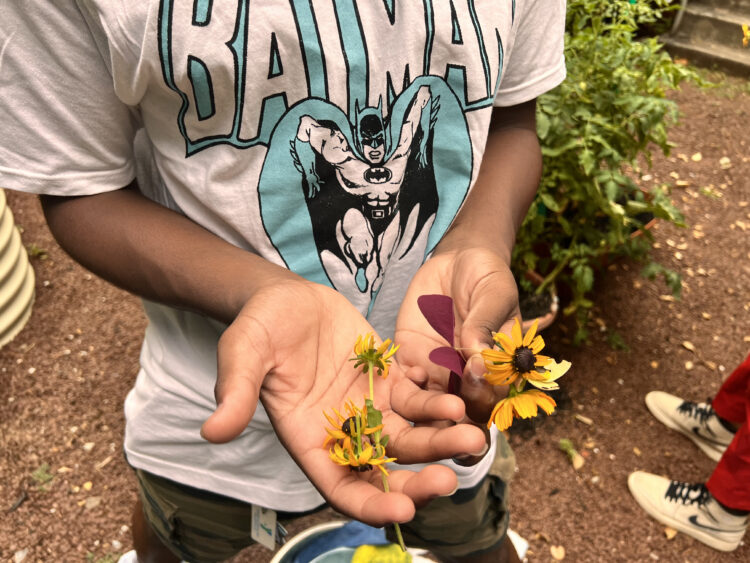
Photo: jackie sumell
From the gardens we learn profound lessons in patience, interdependence, care and mutual aid. We learn about different relationships and boundaries. Abolition, like growing a plant, requires daily attention and care. Love, hope, compassion, and social equity—like a garden—need time, patience, practice and nurturing to fully blossom. This project, much like the garden, needed time and support to mature.
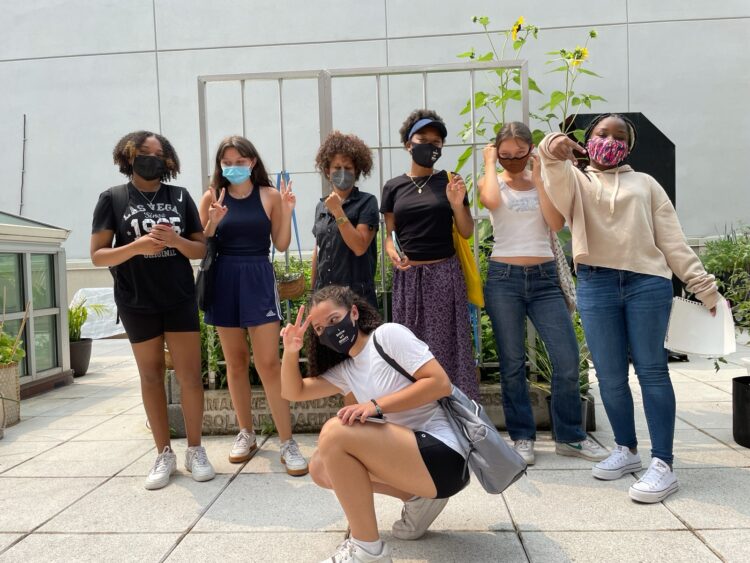
Growing Abolition interns from The Lower Eastside Girls Club at MoMA PS1. Photo by jackie sumell
Growing Abolition is a select internship program with the Lower Eastside Girls Club, MoMA PS1, and multiple community partner gardens.
Through a combination of workshops in gardening, podcasting/journalism and food justice work, we will investigate questions “Is a world without prisons possible?” and “How can we dream a better future together where all people have what they need not just to survive, but to thrive?”
The interactive installation at MoMA PS1 centers plants that teach about abolitionist practice and liberation.
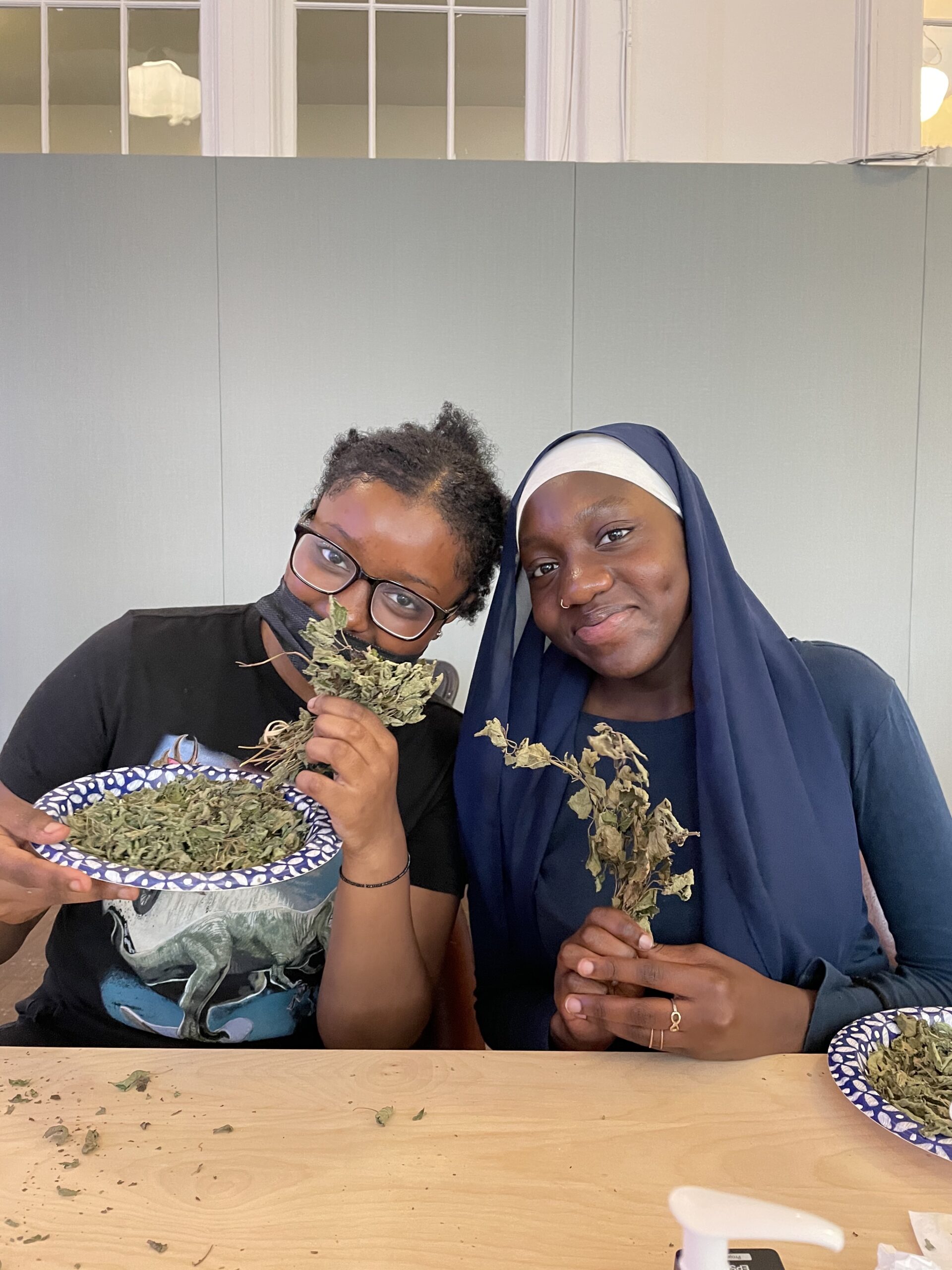 |
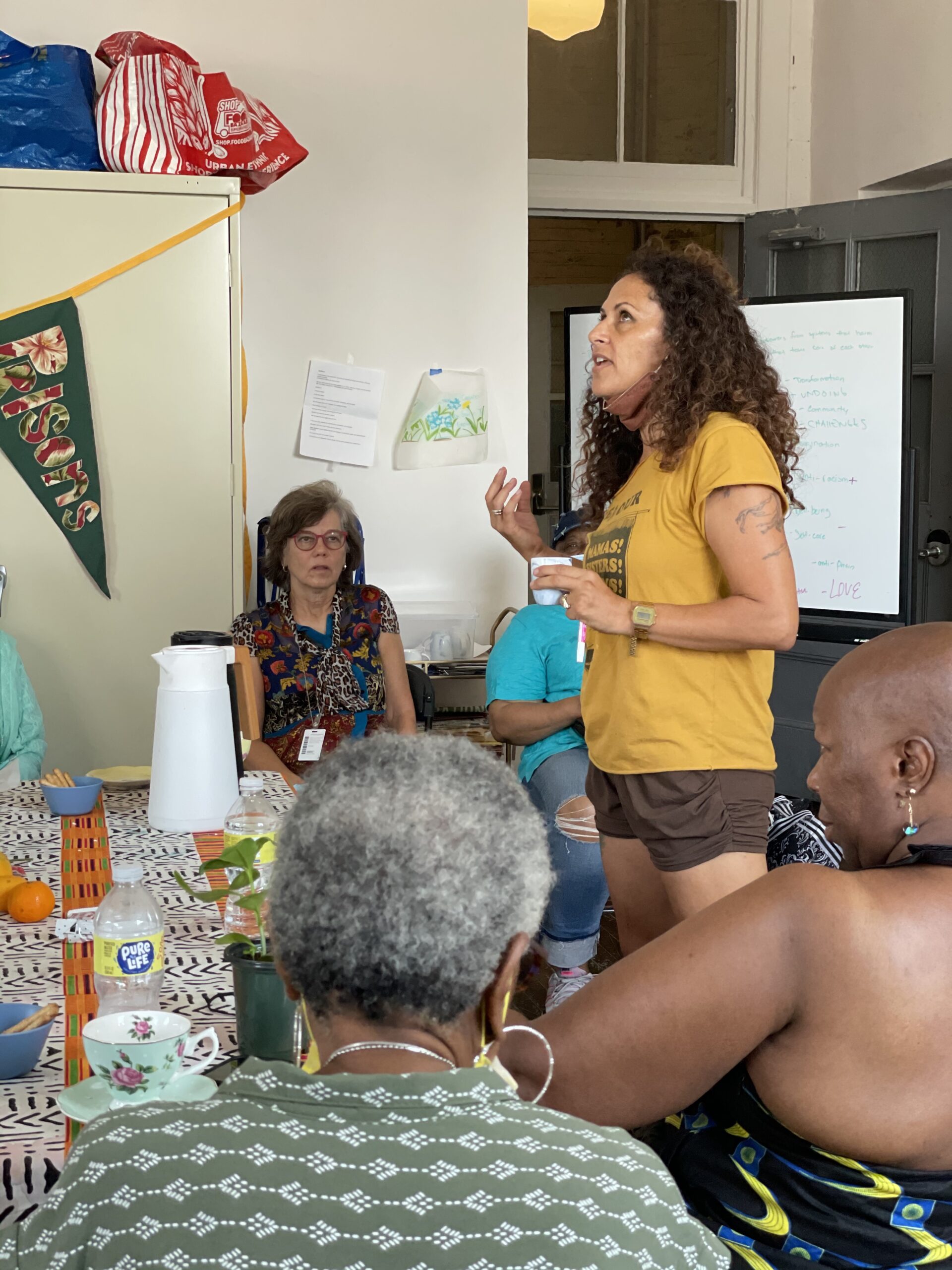 |
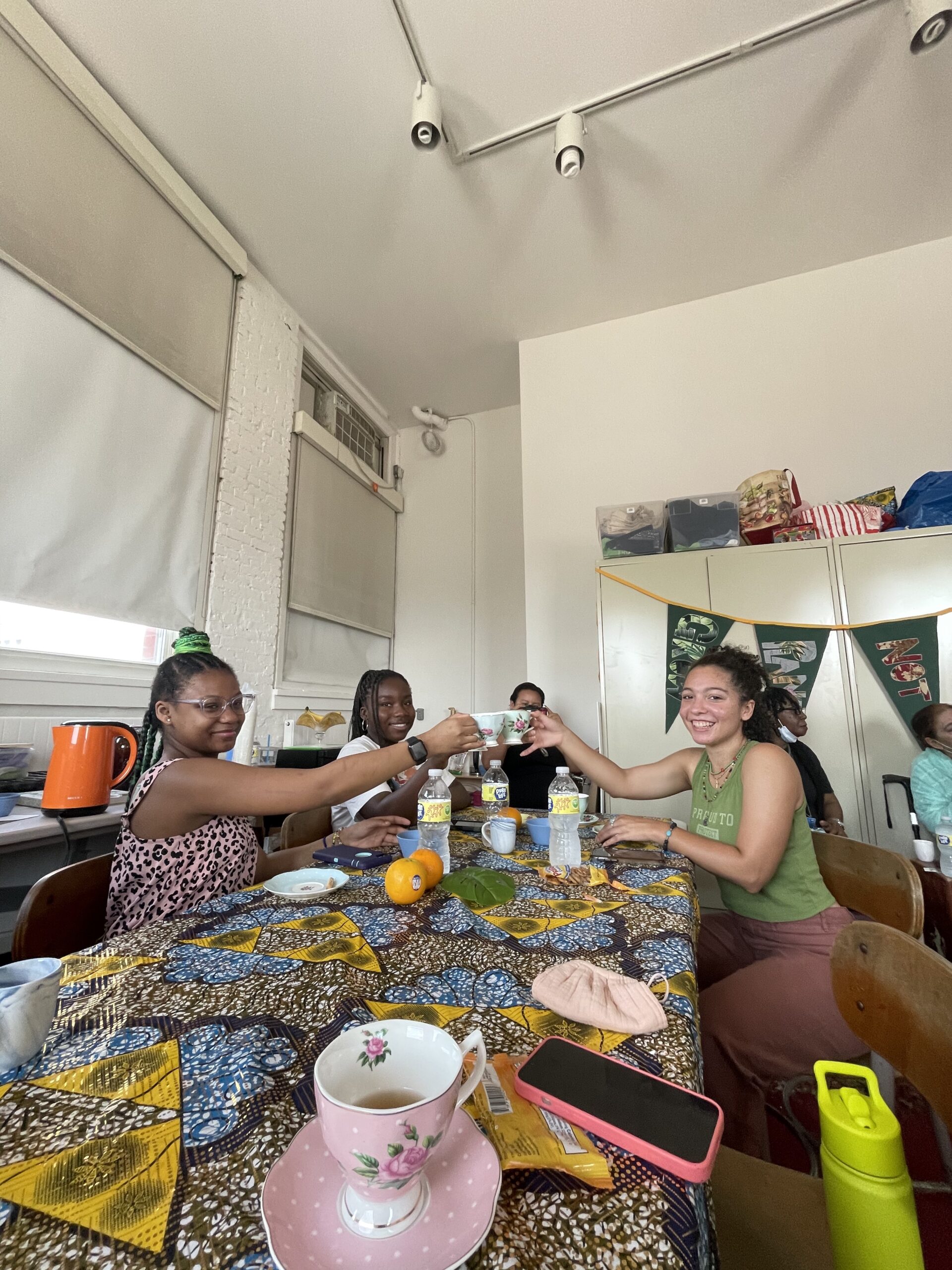 |
Photos: Kelly Webb & Lower Eastside Girls Club
Here’s Growing Abolition in practice—our summer internship at MoMA PS1. The 2022 summer workshop will culminate with an exhibition by The Lower Eastside Girls Club in PS1’s Homeroom this November. The girls will share their experience and from their internship and create an immersive experience that will not only challenge the current criminal punishment system but will provide a road map that offers up practices for an abolitionist landscape and lifestyle.
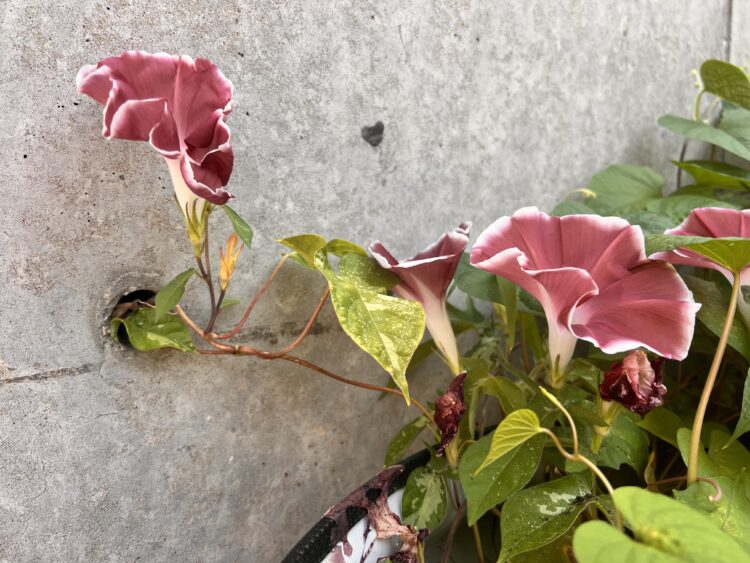
Photo: jackie sumell
Plants teach us about liberation; this is a morning glory escaping the confines of MoMA PS1.
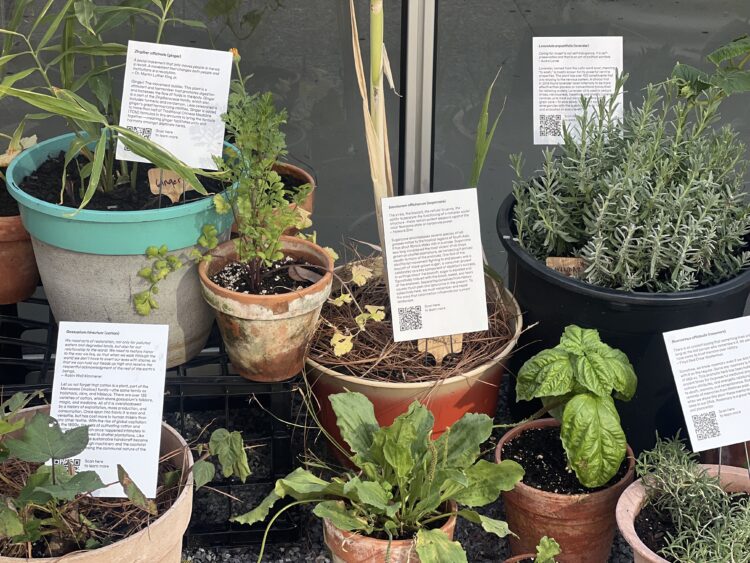
Photo: jackie sumell
My favorite part of the installation Growing Abolition at MoMA PS1 is the interactive online resource, where you can learn many of the different ways plants teach us about abolition by scanning the QR codes in the installation or by going to growingabolition.com/plants.
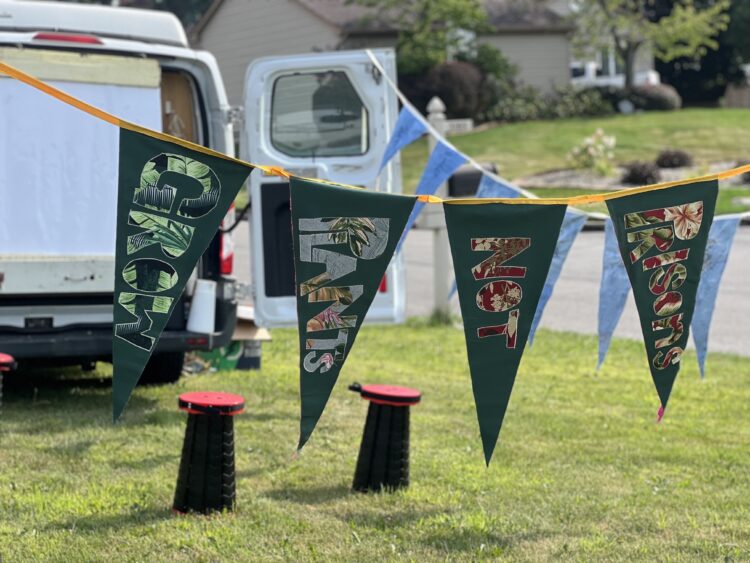
Photo: jackie sumell
Another facet of my project, The Abolitionist’s Tea Party, will ask; How does the natural world endorse abolition as a strategy for liberation?
Traveling to gardens and community spaces across the country, we will circle up, taste, feel, smell different plants that have been grown at Solitary Gardens. Participants in the Abolitionist Tea Party collectively define and share their understanding of abolition, then we ask the plants how they endorse those ideas. We make connections between plants and abolitionist practices in real time through the medium of tea from plants that have been grown by currently incarcerated people through a shared garden exchange designed to heal the communities they are often accused of harming.
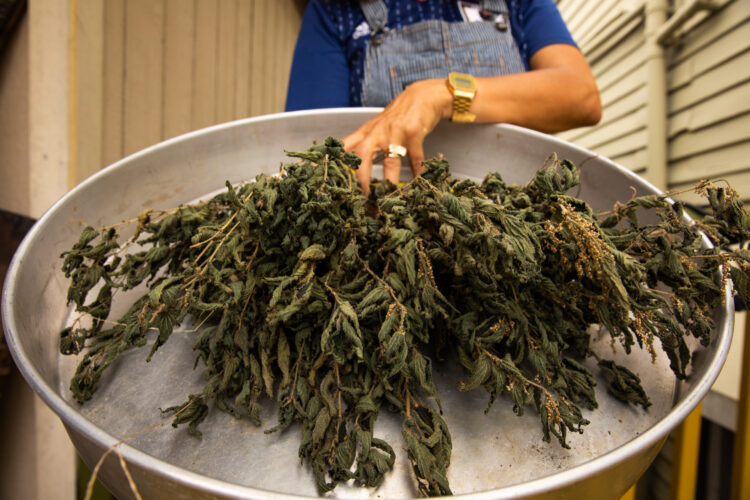
Nettles for the Abolitionist’s Tea Party. photo: jackie sumell
Many of the plants we will try in the tea party are considered “weeds.” People convicted of crimes in the US are often treated like the weeds of our society—ignored, dismissed, or even eradicated. The pesticides and herbicides of society are the cultural infrastructures that reinforce what isabel wilkerson calls the American caste system: a permanent classification designed to keep human value hierarchical for the sake of capitalism. When ecologists project green biases on plants it normalizes the hierarchical language we use on humans. When it comes to incarceration and the cultural response to crime, the same reductive biases eclipse our ability to celebrate the complexity of our own humanity. Abolitionists work to celebrate complexity, diversity and wholism, even when some of the facts are competing. In doing so, we evolve humanity.








Here’s a look behind the scenes of getting The Abolitionist’s Tea Party ready for its tour! We grew and prepared the plant medicine at the Abolitionist’s Apothecary at The John Thompson Legacy Center, in New Orleans. Once we hit the road, this project will force myself and co-pilots to spend time in nature as we go on tour. What gives me life? Van life at night and by the water. Nothing could be more nourishing. Not even mezcal 🙂
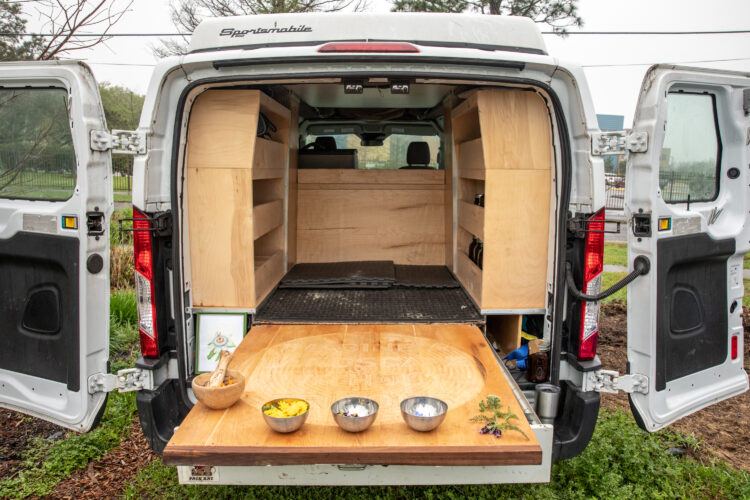
Photo: jackie sumell
Creative Capital has been helpful in the most important way—it gave me time to work on this project, to let these ideas marinate and mature. Creative Capital has been a patient ally the whole way through a pandemic. A sounding board, a cutting board, and a white board—which is part of The Abolitionist’s Tea Party & Apothecary van!
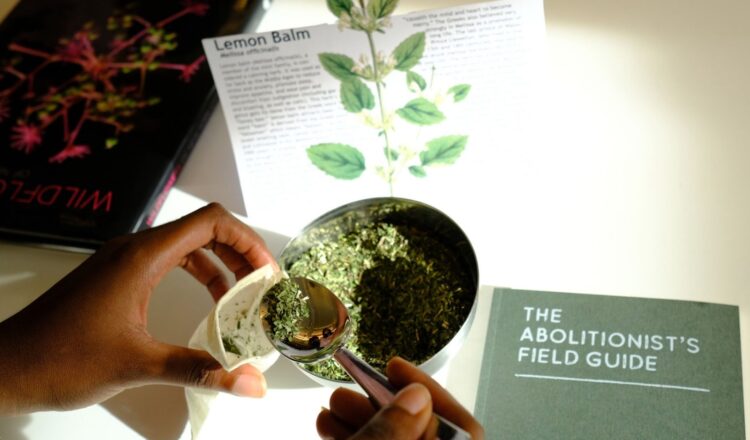
Photo: Destiny Mata
We are kickin’ this baby off at MoMA PS1! The Abolitionist’s Tea Party & Apothecary will begin touring throughout the US and Canada this summer and fall. We’re starting with a book launch and conversation with fellow activist Viva Ruiz, followed by a dance party! Follow along and learn more about our upcoming stops by following @solitarygardens on Instagram!
The Abolitionist’s Field Guide Book Launch will take place at Artbook @ MoMA PS1, Queens, NY, on Friday, August 5 at 6:00pm ET. The event will include a conversation between jackie sumell and fellow Creative Capital Grantee Viva Ruiz. Free with RSVP.
